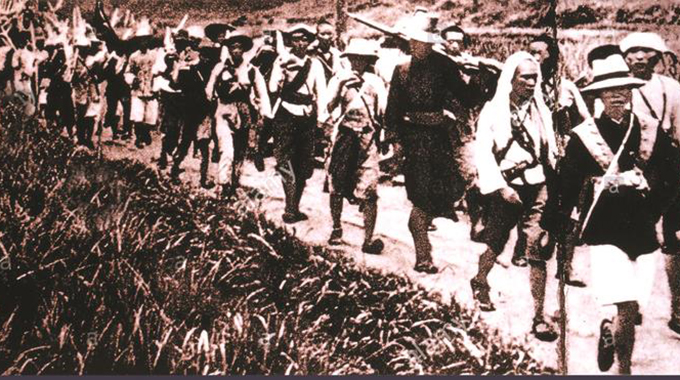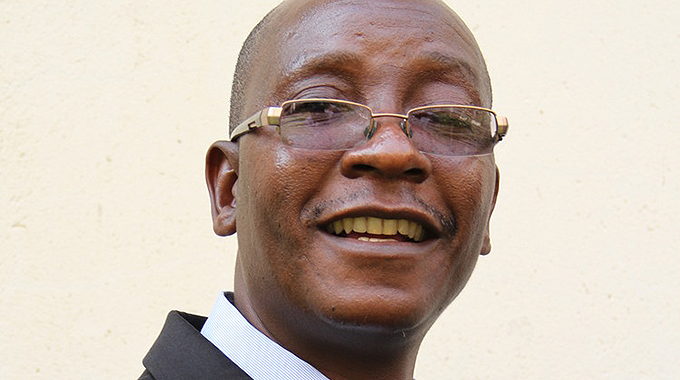The long march to prosperity

Tapiwa Maswera Correspondent
China raised 800 million people out of poverty over the last 40 years. That is like raising 20 million people out of poverty every year for 40 years. The government of China has consistently made a political commitment to reducing poverty.
Their economic plans are driven by people-centred poverty reduction goals and plans. Are there any lessons that Zimbabwe can learn from this? Can the entire Zimbabwean population be raised out of poverty in one year? How did the Chinese achieve this feat?
The long march to prosperity
To explore this dynamic, I will go back to the events of 1934, in a small village called Zunyi. It marks the beginning of the long march. And the beginning of the rise of one of the most enigmatic leaders in the history of mankind. With his rise to power, China discovered people power. It also connected with the people-centred values which still underpin its world-view to this day. Nothing defines China like the long March and Mao Ze Dong. Nothing has left a superior imprint on the psyche of the Chinese people. In 1979, the great Deng Xiaoping declared that getting rich is glorious. It was the flowering of a tree planted more than four decades earlier.
Visionary transformational
leadership, the great helmsman
The legendary Mao Ze Dong bestrides the history of China like a colossus. He ruled far more people, for far much longer and with greater authority than anybody else that has ever existed. What makes this man special? In 1934, when he took over leadership of the Communist Party of China, the Chinese People’s Liberation Army was facing an existential crisis. The Nationalist forces had decimated the Communists. The only chance of survival lay in fleeing 1 200 kilometres to the north on foot. It was during this arduous journey that Mao’s genius flourished. Putting people values at the centre of all the operations of the Chinese People’s Liberation Army made it stronger, more effective and resilient. Sacrificing the Chinese Liberation Army in confrontational battles to gain territory was suicidal and counterproductive. The Chinese Liberation Army had inferior resources and weapons. It could never win pitched confrontational battles against the nationalists.
Aligning with people values
The smart option, instead, was to concentrate on creating conditions that favoured the communists. To fight only those battles that the communists knew they could win. “Weapons are an important factor in war, but not the decisive one; it is man and not materials that counts” Mao said. In other words, the man who carried the gun, was a much more valuable revolutionary resource than the gun. Losing trained cadres was a serious setback for the revolution. Trained men could not be easily replaced. Whereas territory could be regained. Communist soldiers were like fish in water. They depended on the local population for food, security and intelligence.
To alienate the people was to commit suicide. To crown it all, Mao defined the fighting process; when the enemy advances we retreat; when the enemy camps, we harass; the enemy tires we attack; the enemy retreats, we pursue. This was as neat a summation of process as anyone will ever come up with in war or in business.
Defining your people-driven vision
In times of crisis, the greatest job of leaders is to define priorities. Leaders must get rid of ambiguities and contradictions. Ambiguities and contradictions sap energy and deter progress. This must be done with as much clarity and vision as possible. The vision must resonate with the people. It must define a future that people want to belong to. As Mao himself puts it: “The people, and the people alone, are the motive force in the making of world history.” In other words, a vision must align with people values. This is not a matter of charity. It is the key to survival.
Staging unfair fight
Mao knew how to set up and orchestrate an unfair fight. He knew how to ensure that he and his people were always on the winning side. Inferior weapons and lack of resources was not an excuse. And China today, thanks to Mao, is championing a new kind of capitalism. A capitalism that focuses on getting people out of poverty.
There was a time on radio, when every Sunday morning, the booming voice of Paul Mkondo extorted us to buy insurance. In those days, every teacher and every civil servant had at least two insurance policies. And then the wheels came off. In 2009, policyholders and pension fund contributors lost 100 percent of their pension and insurance benefits. This left a big dent on the credibility of the financial services industry.
As if this was not enough, we are repeating the process as we speak. People who put away savings in US dollars have seen their savings reduced to less than five percent of the value that they put away. Whatever credibility the industry salvaged in 2009, lies in tatters. Like the Communist Party in 1934, the non-banking financial services industry in Zimbabwe faces an existential crisis. Customers are deserting in droves. Skilled workers are leaving for better working conditions in foreign countries. The time to define a people-centred vision that resonates with the future is now.
Conclusion
In conclusion, it is time to define the value that the non-banking financial services industry brings to this country and its people. The beginning of a long march towards prosperity begins by recognising the central role of the financial services worker and the financial services customer. Zimbabwe can emulate China by raising half a million people out of poverty each year for the next 40 years.
Tapiwa Maswera is an Executive Director and founder of Global Worldview, a company dedicated to the development of world class leadership. He can be contacted at [email protected]









Comments